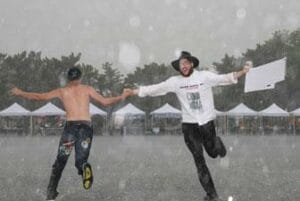Рэй Кестенбаум
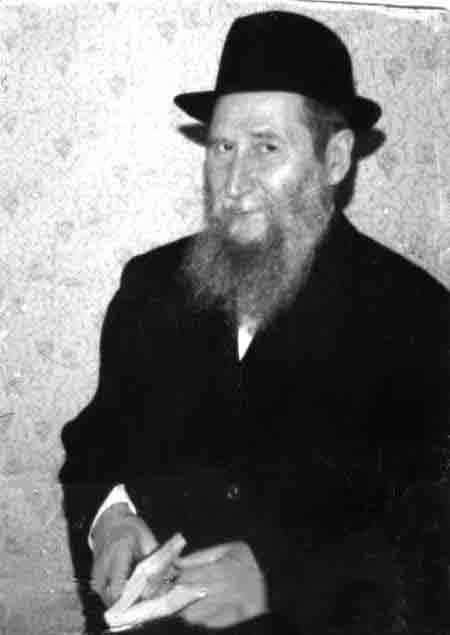
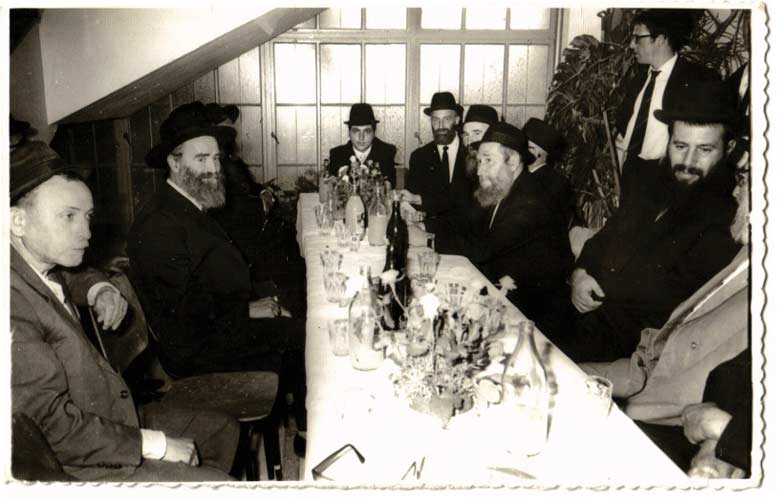
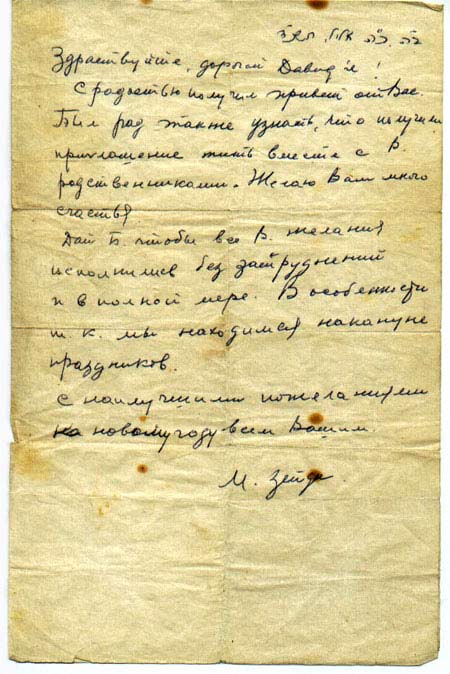
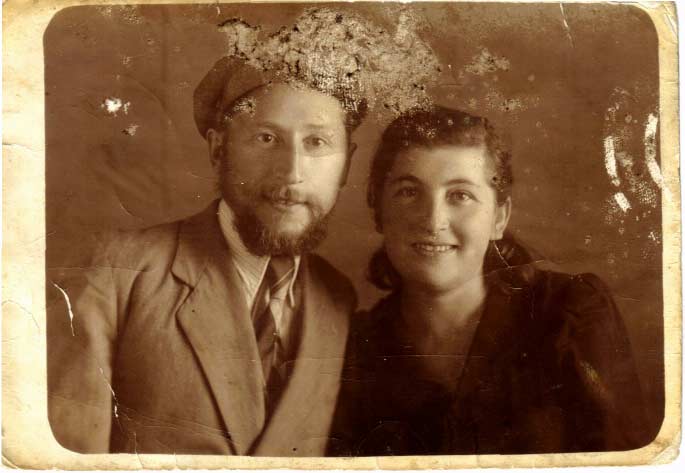
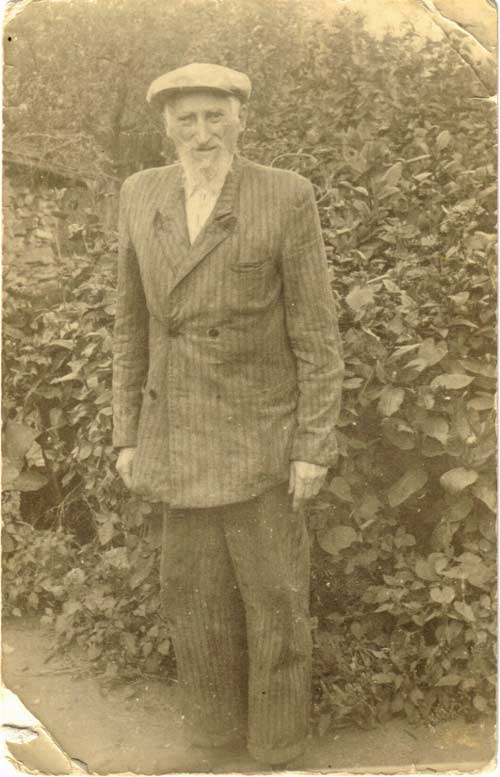
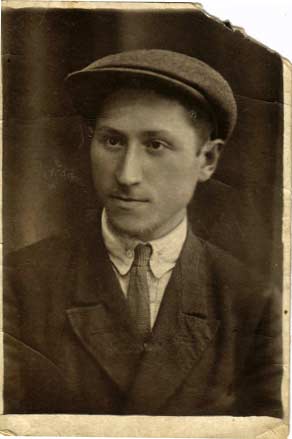
Бруклин, Нью-Йорк — 16 октября исполнилось 28 лет Раввин Довид Окунов, который был зверски застрелен в возрасте 68 лет по дороге на утренний шахарит служба на Монтгомери-стрит. В четверг, 25 октября 1979 года (Далед Хешван) в 7 утра Реб Довид, как его ласково называли, был застрелен в голову одной пулей. Всеми любимый учитель Торы и общественный деятель, Реб Довид погиб на месте. Вся община Любавич и евреи Нью-Йорка были в состоянии шока, когда история об убийстве появилась в New York Times и Daily News.
Позднее в тот же день на его похоронах присутствовало более 3000 любавичских хасидов, и он был похоронен на старом кладбище Монтефиоре в Квинсе, недалеко от места упокоения Шестого Любавичского Ребе.
Тогдашний штат Нью-Йорк Губернатор Хью Кэри заявил, что все жители Нью-Йорка были «в ужасе» от убийства раввина Окунова. Он сказал: «Особенно трагично, что человек, приехавший сюда (из Советского Союза), чтобы исповедовать свою религию, был так бессмысленно и бессмысленно убит. Мы можем только надеяться», сказал Кэри, «что память о его жизни, о его борьбе за свободу, справедливость и милосердие будет бережно храниться каждым жителем Нью-Йорка».
Через несколько дней после убийства афроамериканский подросток, Кэролл Миллер из Краун-Хайтс, был арестован и заключен в тюрьму. Полиция классифицировала мотив убийства как ограбление, а не как расистский инцидент. Его судили и приговорили к 22 годам по обвинению в преднамеренном убийстве.
«Реб Довид не умер в одиночестве и без богатого наследия», — сказал скорбящий. «Он оставил замечательную семью асканим, активисты идишкайта. У него была благородная история как пожизненного борца за иудаизм в Советском Союзе во времена и местах, когда практика идишкайта была рискованной, даже смертельно опасной».
| На этом фарбренгене Ребе сломался и заплакал, он знал Реба Довида в России с 1926 года, когда Реб Довид был студентом, а Ребе собирался стать зятем 6-го Любавичского Ребе. Сотни хасидов, видя Ребе в слезах, также плакали от бессмысленной потери такой любимой хасидской фигуры. |
На специальном фарбренгене Моцай Шаббат во время Шивы Любавичский Ребе говорил об ужасающей потере жизни Реба Довида. «Он был человеком, который пожертвовал своей жизнью в России. Ему удалось сбежать и приехать в эту свободную страну, но его убили по пути на выполнение мицвы».
На этом фарбренгене Ребе не выдержал и заплакал — он знал Реба Довида в России с 1926 года, когда Реб Довид был студентом, а Ребе собирался стать зятем Шестого Любавичского Ребе. Раввин Йосеф Ицхок Шнеерсон. Сотни хасидов, увидев Ребе в слезах, также плакали от бессмысленной утраты столь любимой хасидской фигуры.
Но Ребе взял себя в руки и объявил, что ешива будет построена «над его могилой», а именно еврейская дневная школа, посвященная удовлетворению потребностей мальчиков из Советского Союза. Ребе предложил, чтобы учреждение Торы в его память было названо Охель Довид в память о раввине Довиде Окунове, который на момент своего убийства помогал евреям, оказавшимся за железным занавесом.
Ohel Dovid, расположенный в главной семинарии Любавич, Tomchei Temimim, на Ocean Parkway, с момента своего основания в 1979 году обучал мальчиков из семей бывшего СССР как изучению Торы, так и ряду светских предметов. Как начальная, так и средняя школа, Ohel Dovid, под эгидой Фдрузья Рбеженцы из Эна корме Эurope (БЕСПЛАТНО), полностью аккредитована штатом Нью-Йорк и Советом регентов. Школа видела тысячи русско-американских студентов, прошедших через ее порталы, чтобы стать ближе к иудаизму и поступить в некоторые из лучших колледжей на Восточном побережье. Ее выпускники профессий варьируются от врачей, юристов и инженеров до бизнесменов и даже механхим, учителя еврейских дневных школ.
Дневная школа Mazel от FREE, ее детский сад, расположенный по адресу 2901 Brighton 6th Street в Брайтон-Бич, и ее школа Elmentery, расположенная по адресу 60 West End Avenue в Манхэттен-Бич, являются продолжением Охель Довид, в память о Ребе Довиде.
Модель бойца Хабада
История Довида Окунова — это история героя Любавичского движения, который воплотил в себе некоторые из основных элементов того, что заставило движение развиваться и подтолкнуло его к росту. Родился в 1911 году на Украине во время главенства 5-го Любавичского Ребе, Раввин Шолом Довбер Шнеерсон, молодой Давид с самого детства проявлял неукротимую преданность и любовь к идишкайту.
Он вырос во времена репрессий и нужды. Когда разразилась социалистическая революция, жить как практикующий еврей стало практически невозможно. Его родители, Реб Эфраим и Г-жа Эстер Окунов, снял дом меламед чтобы начать его молитву, Танах и Мишну.
| В 1926 году, когда он изучал сложный отрывок из трактата Баба Меция со своим партнером по учебе, в бейс-мидраш вошел молодой человек с поразительной внешностью и начал просвещать их о сложности предмета. Студенты были очень довольны. Посетителем оказался раввин Менахем-Мендл Шнеерсон, будущий зять и преемник 6-го Любавичского Ребе. |
В 13 лет, после бар-мицвы, он настоял на обучении в подпольной ешиве «Томхей Темимим» в Кременчуге (Украина), которую организовал предыдущий Ребе.
Родители Довида возражали; времена были опасные. Поэтому Довид устроил двухдневную голодовку, и его родители смягчились. Иешива, противоречащая всему, за что выступал новый коммунистический режим, учила его Талмуду, Галахе, еврейской истории и поддерживала его готовность проявить месират нефеш, самопожертвование ради иудаизма.
Довид был не только преданным учеником Торы, но и выходил обучать Торе других в импровизированных классах и подпольно. хадарим. Он стал талмид хохом, а меламед и верный любавичский хосид.
В 1926 году, изучая трудный отрывок из трактата Баба Меция со своим чавруса (партнер по учебе), Раввин Нохум Лабковский, вошел поразительно выглядящий молодой человек Бейс мидраш Кременчуг и начал просвещать их о трудности предмета. Студенты были очень довольны. Посетитель был Раввин Менахем Мендель Шнеерсон, будущий зять 6-го Любавичского Ребе, а 24 года спустя и 7-го Любавичского Ребе.
Годы спустя, в 1964 году, Ребе вернул письмо Ребу Довиду, в котором он подписался как М. Зейде. Ребе сделал это, чтобы не подвергать опасности Реба Довида. Ребе Довид обращался к Ребе как к «Зейде», потому что КГБ, коммунистическая тайная полиция, знала о раввине Шнеерсоне в Америке. Любая связь с религией была строго запрещена, а перехват и цензура почты были обычным делом. В своем письме Ребе намекал на то, что Реб Довид покинул Россию. Он написал ему по-русски:
«Моему дорогому внуку Давиду,
Шалом.
Я был очень рад получить от тебя привет. Я также был очень рад узнать, что ты получил «приглашение» жить вместе со своими родственниками, и я желаю тебе большого счастья. Пусть Хашем Исборах дарует, чтобы все твои желания были исполнены без всяких трудностей в самой полной мере. И пусть мы все вместе встанем к Хагиму.
С наилучшими пожеланиями всем вам в Новом году,
М. Зейде»
По иронии судьбы, Реб Довид и Ребе не сильно отличались по возрасту, но Ребе питал невероятную любовь к своим хасидам как к брату, отцу и деду, и эта любовь безоговорочно отвечала ему взаимностью как братьям, детям и внукам.
Окуновы были выселены и вынуждены были переезжать несколько раз из-за коммунистического запрета на религию. Они выбрали азиатские города, такие как Ташкент, а позже Самарканд, в обоих из которых были небольшие еврейские, даже любавичские общины. Коммунистические чиновники в Азии были более снисходительны к населению, чем их коллеги в европейских городах. Однако КГБ узнал, что реб Довид был последователем раввина Шнеерсона в Америке, и это считалось веской причиной для ареста, суда и заключения в Сибири.
Советская тайная полиция приехала в Ташкент в 1947 году, чтобы арестовать Реба Довида. Они постучали в его дверь, но в тот момент его не было дома. Раввин Зеев-Вольф Сирота, обеспокоенный сосед и друг, заметивший, что за ним охотится КГБ, отправился в город, чтобы найти Реба Довида. Найдя его на работе, они сообщили ему, что его разыскивает КГБ. Реб Довид не стал рисковать и отправил сообщение своей жене через раввина Сироту, чтобы уведомить ее, что он не вернется домой и что он сядет на следующий поезд в Украину, чтобы навестить своих родителей. Реб Довид немедленно уехал, и вскоре к нему присоединилась его жена. После нескольких дней посещения его дома КГБ прекратило свои поиски на этот срок.
Однако семейная жизнь процветала среди хасидов в Советском Союзе при любых условиях. Реб Довид женился Басия Ривка Зубаровски из хасидского города Невель, у них было четверо детей: Меир, Гершель, Мендель и Ида. Но г-жа Окунова скончалась в 1965 году, через год после того, как Реб Довид услышал от Ребе и за три года до того, как он репатриировался с детьми в Израиль.
Вскоре после прибытия в Нью-Йорк в 1967 году Ребе попросил Реба Довида оказать содействие организации «Эзрат Ахим», чтобы помочь евреям из бывшего Советского Союза, все еще находящимся в заключении в Советском Союзе.
У Ребе было предчувствие, что коммунистическая империя долго не продержится, и он оказался прав. Вместе с сыновьями Ребе Довида Ребе основал FREE как организацию, призванную помогать прибывающим беженцам из Восточной Европы с их материальными, образовательными и духовными потребностями. Видение Ребе было пророческим, и с тех пор FREE выдержала испытание временем как центральная организация Америки, обслуживающая русских беженцев, а позже, после распада Советского Союза, русских иммигрантов. Десятки тысяч русских еврейских беженцев и иммигрантов обрели здесь новую свободу, и с помощью организации FREE они обосновались и нашли работу, еврейскую идентичность и образование.
Реб Довид лежит недалеко от Ребе на кладбище Old Montefiore. Религиозные дела евреев FSU в Америке были переданы детям и внукам Реба Довида, которые работали над распространением любви и идишкайта в растущей общине.

